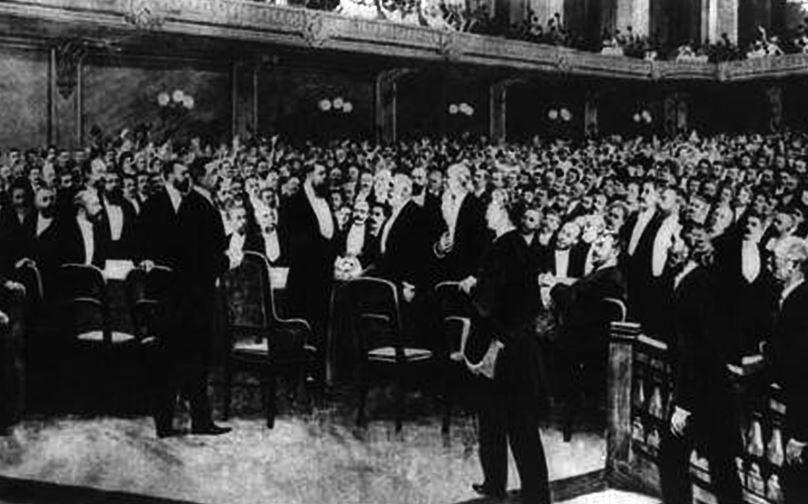Getting your Trinity Audio player ready...
American Zionist Movement Executive Director Herbert Block defines Zionism as the Jewish people’s right to self-determination “and to have our national homeland in our ancestral land.”
The word “Zionism” has been under attack for decades. Following the October 7 massacre and the ongoing war, the anti-Zionist movement has become increasingly vocal. Many Jews, especially on college campuses, are now hesitant to openly identify as Zionists due to rising hostility. However, in an interview with the ILTV News Podcast, Block made it clear that Zionism is here to stay.
“You can’t take Zionism out of our people, our tradition,” Block said. “Jews around the world, for millennia, have been talking about Zion.”
This year, Zionism will take center stage in Jewish discourse for another reason: the upcoming World Zionist Congress elections. These elections determine Zionist Jewish leadership worldwide and influence priorities and funding allocations for the next five years.
2 View gallery


Jews march for Israel in Washington, D.C. in 2023
(Ted Eytan (Creative Commons license))
For those unfamiliar with the process, it can seem complex. Block helped break it down on the podcast.
He leads AZM, the umbrella Zionist federation in the United States and the American arm of the World Zionist Organization. Under AZM’s umbrella are 46 national Jewish organizations, and nearly 40 countries have similar Zionist organizations.
The World Zionist Organization (WZO) is one of the Jewish people’s legacy institutions. Founded by Theodor Herzl, it organized the first Zionist Congress in Basel in 1897. Today, it works alongside Keren Kayemeth LeIsrael, the Jewish Agency, and Keren Hayesod—three institutions considered the “national institutions of Israel.” Together, they bridge the connection between Israel and Jews in the Diaspora.
The World Zionist Congress serves as the parliament of the Jewish people, with members elected globally. Unlike many Jewish organizations, representation in the Congress is not based on financial contributions. Instead, it is a “grassroots convening of representatives of Jewish communities, both in Israel and around the world,” Block explained. “It’s what was formed by Herzl. And now, this year in October, we’ll meet for the 39th Zionist Congress, following in Herzl’s footsteps.”
Watch previous ILTV News Podcasts:
Delegates gather every five years to set the agenda and direction for these national institutions. These organizations existed before Israel’s founding and remain integral to Herzl’s vision—keeping Jews in Israel and the Diaspora connected and advancing the Zionist cause. They continue to support Jewish communities worldwide, promote Zionist and Jewish education, and fund various initiatives that impact Jews across the globe.
Voting for the slates that will be represented in the World Zionist Congress opens in March. Five years ago, 14 parties ran in the elections. This year, in the wake of October 7, that number has risen to 21.
“We're hopeful there will be a greater turnout this time,” Block told ILTV. In the last election, around 125,000 voters participated in North America, despite millions of eligible Jewish voters over the age of 18. “We're hoping that among affiliated Jews, there will be a greater turnout.”
Block stressed the importance of voting, as these national institutions allocate more than a billion dollars annually. Delegates play a key role in determining how those funds are distributed.
“To be represented and have your priorities reflected, voting is essential,” he said.
“This election is an opportunity for people to stand up, unite around Zionism, and connect to the community,” Block emphasized. “I’m a Zionist, and that’s what this election is about—affirming your Zionism and representing your views on the Zionist movement. We’re all bound together as a Jewish people.”


